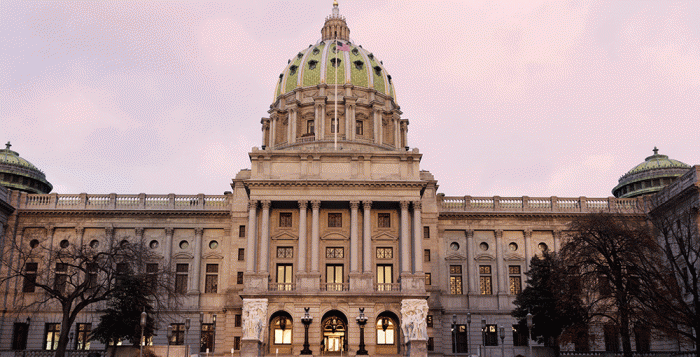The House Appropriations Committee will meet for a budget hearing with the Department of Drug and Alcohol Programs (DDAP) at 10:00 am on Thursday, March 3. The budget hearing will be livestreamed.
For Fiscal Year 2022/23, the governor is budgeting a total of $317 million for DDAP, which is a 16 percent reduction over the current fiscal year’s budget of $379 million. The decrease is due to a $60 million reduction in federal State Opioid Response dollars.
Of the total amount budgeted from the General Fund for the upcoming fiscal year, $270 million is budgeted for grants and subsidies to drug and alcohol programs. Of those funds, 75 percent ($220 million) comes from federal grants, including:
- SAMHSA’s Substance Abuse Prevention and Treatment Block Grant (SABG) ($80 million);
- State Opioid Response (SOR) Grant ($118 million); and
- Substance Abuse Special Projects Grants ($22 million).
The remaining $50 million earmarked for drug and alcohol programs in the General Fund come from the McKinsey opioid settlement ($5 million) and $45 million in state funding.
Other funds in DDAP’s budget include the Compulsive and Problem Gambling Treatment Fund ($13 million), the Medical Marijuana Program Fund ($6 million), and the State Stores Fund ($5 million).
DDAP’s budget also includes $23 million ($3 million of which is state money) earmarked for operation and administration of the department and its various grant programs. The federal grants allow for a percentage of the funds to be used for operations and administration. Operations and administration also includes the department’s complement, or staffing, and their salaries.
While most of the SABG and state funding earmarked for drug and alcohol programs are distributed through the Single County Authorities, SOR and other special grant projects are delivered typically through a grant process. Details of initiatives that these grants have funded can be found on DDAP’s Department Funding web page.
As the regulator of the state’s addiction treatment system, DDAP’s funding of drug and alcohol programs pales in comparison to the Department of Human Services’ budget for drug and alcohol services. The governor has budgeted $6 billion for behavioral health services for Medicaid capitation rates, $1.6 billion of which is earmarked for drug and alcohol.
More details of DDAP’s budget are available in DDAP’s Bluebook.
DDAP’s Senate Appropriations Hearing is set for 2:30 pm, Wednesday, March 16.


















